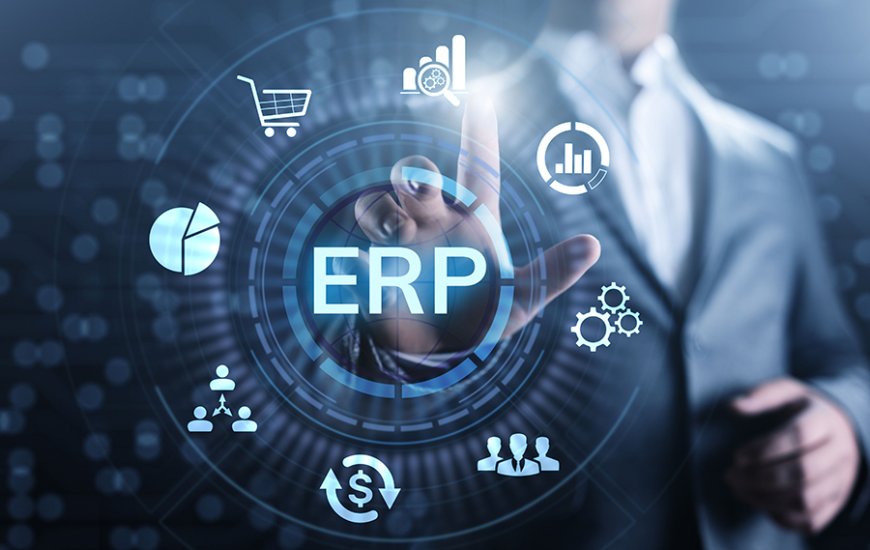ERP for State Universities and Other Educational Institutions
ERP for schools provides payroll administration by eliminating manual intervention and ensuring payments arrive on time. Furthermore, this software solution simplifies and streamlines various functions essential to academic institutions like document processing, fee administration, admissions management, as well as keeping you abreast of industry news and trends.

Each institution has its own set of unique requirements that determines the speed at which ERP implementation can occur. A thorough understanding of these will foster employee buy-in and ensure all aspects of business processes are covered.
Veterinarian management can be complex, requiring efficient organization of pet details, appointments, billings and inventory. ERPNext's user-friendly Veterinary Management module simplifies processes with an intuitive workflow.
Budgeting
University leaders understand the demands of providing high-quality education require significant financial resources, yet balancing short- and long-term budget needs can be challenging. Daily requirements like maintaining student information systems, staffing for counseling or teaching positions and other immediate requirements often conflict with more significant initiatives like improving course design or administrative efficiencies that require long-term investments.
ERP solutions can provide assistance here as they organize data and processes into one user-friendly platform, automating much of the administration process to save both time and money by eliminating manual tasks that distract teachers from teaching students directly. They also eliminate error-prone manual work which increases overall efficiency and accuracy.
Implementing ERP software takes considerable time and resources, so it is crucial that the project be planned carefully prior to beginning. Be sure to account for licensing fees, project management costs, data migration costs, consultants fees, infrastructure upgrades and training costs when planning. Furthermore, it's vital that your institution understands its current and future needs, while considering whether those needs will change after adopting an ERP solution.
An effective implementation plan must also include an effective communication and education strategy in order to promote successful adoption among staff. This will reduce resistance while simultaneously encouraging buy-in from your workforce. It's also beneficial to anticipate any possible obstacles ahead of time and plan how you'll overcome them.
Financial Management
Financial administration tasks in educational institutions demand both time and effort from their management staff, including evaluating fees, collecting tuition payments and dues, maintaining accurate records of expenses and assets, and providing real-time data for key decision-makers in decision-making processes. ERP systems automate and streamline these functions for easier administration for all parties involved.
Implementing an ERP system is a significant undertaking that requires significant staff resources, even when third-party integration specialists are utilized. When planning for this endeavor, it's crucial to account for current and future staffing needs in order to avoid employee burnout during implementation.
Implementing an ERP system can be costly, particularly if it must be customized heavily to fit with university-specific needs. Customizing further increases software costs, delays projects and expenses overruns; additionally it is essential that it has strong security layers as this data holds information on both students and staff that must remain confidential.
The top ERP systems for universities are tailored to the unique requirements of higher education institutions while offering a flexible and user-friendly experience. An example is Unit4, an inexpensive open-source solution that can easily be tailored to an institution's requirements. Another alternative is iSAMS which offers cloud-based solutions for finance, HR, student information management as well as real-time reporting that helps facilitate decision making.
Human Resources
Human resources tasks at universities can be complex. Generating reports about students, monitoring financial transactions and maintaining attendance records all require time and energy; educational ERP software makes these tasks simpler so teachers and staff can devote their efforts towards more important activities such as curriculum design or student care.
ERP software makes communication between students, teachers, parents, and administration simpler, helping all parties stay up-to-date on important issues while reducing waiting time in lines. Plus, mobile device compatibility ensures faculty, staff and students can use this tool anytime, anywhere!
An ERP system can save universities money by cutting stationary costs, printing and mailing fees, hardware expenses and operational and administrative expenses. Furthermore, automating processes allows staff to make quick decisions faster leading to long-term cost reduction. Over time these savings could translate to an increase in returns.
Finding an ERP solution suitable for universities is essential, with software needing to accommodate future growth and changing business requirements, with an easy user interface that makes the software accessible. Finding a suitable vendor such as Odoo that can meet this criteria is also vital - Odoo offers a modular ERP system which can be customized and integrated according to each university's individual needs, while its open-source architecture makes it suitable for mid-sized institutions that need scalable solutions.
Payroll
Education-related accounting tasks involve various accounting-related responsibilities, such as overseeing fees, administering exams, processing payment vouchers and compiling daily collection reports. School administration must also keep an eye on employees and students records. An ERP for educational institutions streamlines all these processes while making all information easily accessible - saving both time and money while minimizing mistakes or issues with access to stakeholders' relevant data whenever needed.
ERP for schools provides payroll administration by eliminating manual intervention and ensuring payments arrive on time. Furthermore, this software solution simplifies and streamlines various functions essential to academic institutions like document processing, fee administration, admissions management, as well as keeping you abreast of industry news and trends.
University-focused universities may find ERP systems helpful tools; however, important considerations must be taken when adopting such an ERP solution. First and foremost is compatibility between existing systems and any new software introduced - otherwise implementation could become problematic and workflow interrupted. Second of all is resistance from educators and staff towards change that may impede adoption rates and lower productivity; effective training and clear communication may help.








































































![https //g.co/recover for help [1-866-719-1006]](https://newsquo.com/uploads/images/202506/image_430x256_684949454da3e.jpg)

























![[PATREON EXCLUSIVE] The Power of No: How to Say It, Mean It, and Lead with It](https://tpgblog.com/wp-content/uploads/2025/06/just-say-no.jpg?#)





















































